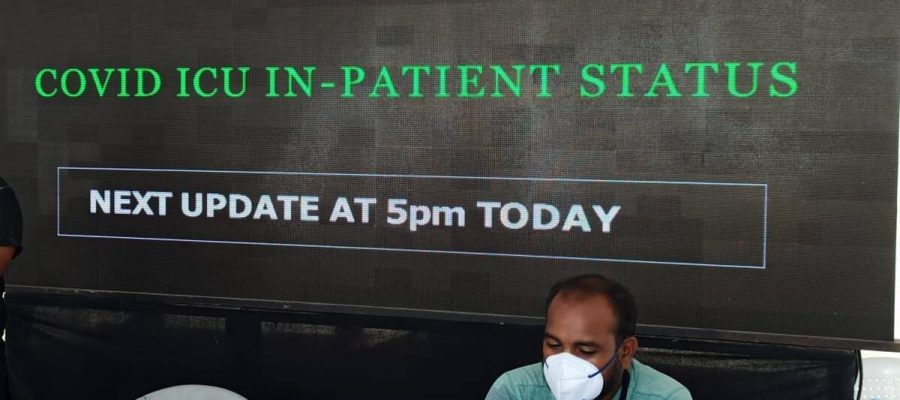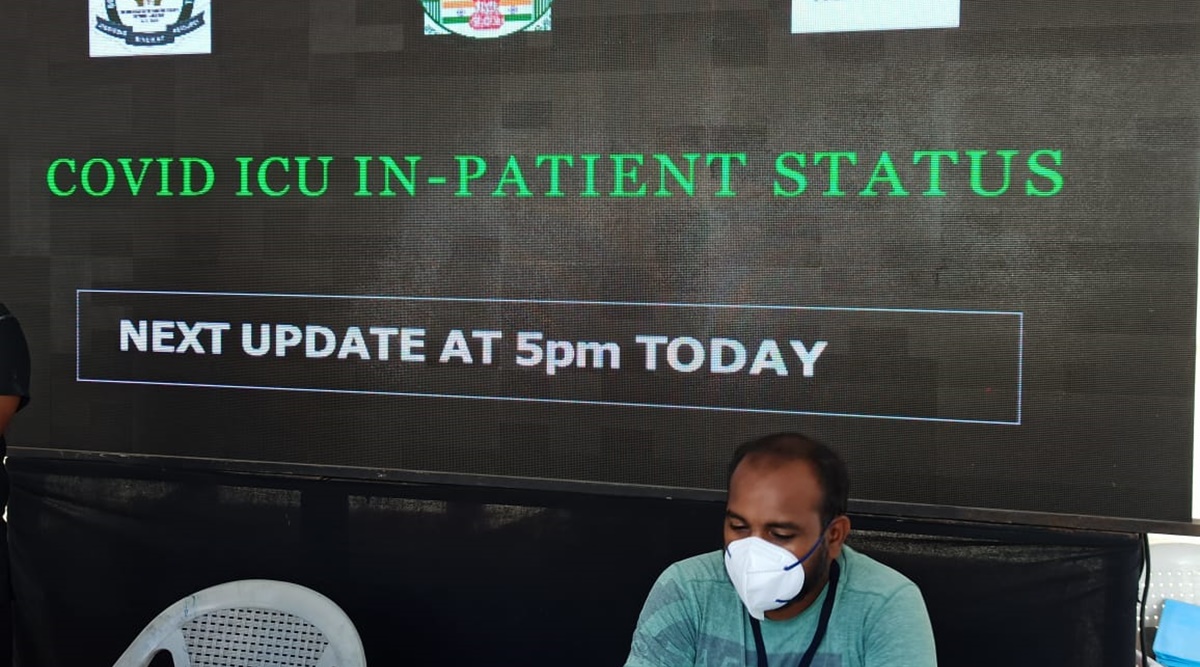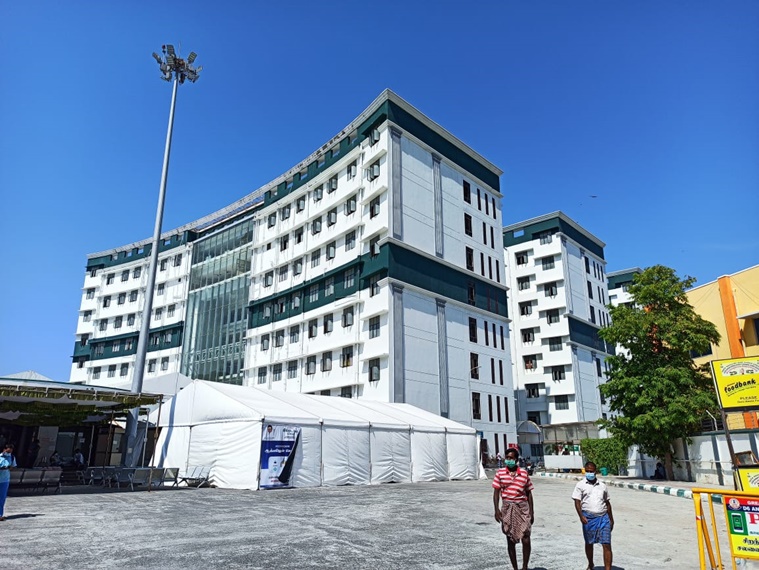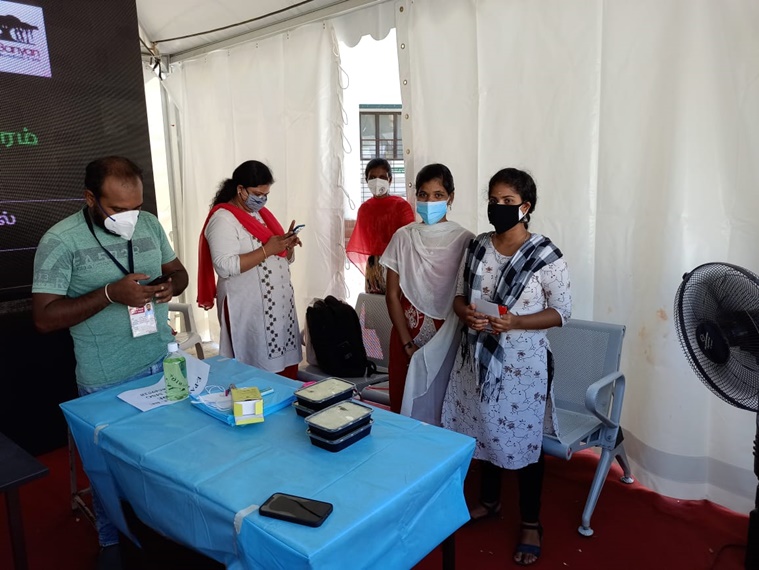The hospital said the step was taken to reduce anxiety in family members, and protect them from the exposure risk they take when they come to check the health status of their loved ones.
To reduce exposure and mental fatigue for attenders of Covid-19 patients at Chennai’s Government Medical College, Omandurar Estate, an LED digital board is being set up at the entrance to display the health status of those admitted.
A brainchild of Hospital Dean Dr. Jayanthi, the programme is a joint initiative with Tamil Nadu’s Unified Command Centre’s NGO coordination cell.
The Omandurar Government Hospital, one of the biggest facilities in the state for Covid-19 patients, has around 950 beds, including ICU beds and those with oxygen support.
For the kin of patients in ICU, the only way to get information about their health was speaking to doctors, a process involving anxious waits and risk of exposure. Now, the LED display will show the data of the patients in ICU in three categories – Stable, Critical, and Very critical, in white, yellow and red colours.
Speaking to Indianexpress.com, Hospital Dean Dr. Jayanthi said the dry run of the initiative has been on for four days and on Wednesday, the state health minister will launch it officially.
“I wanted to do something like this to reduce the anxiety of attenders. The NGO Banyan approached us with some ideas and we collaborated and came up with the LED initiative. The duty doctors provide the status of about 100 patients in different ICU wards. The details are updated twice a day, at 8 am and 5 pm in both Tamil and English. We are planning to provide the updates every hour. The patient’s name, age, sex, and clinical status will be displayed on the board. Trainee doctors will be present at the help desk and the attenders can talk to them to know more about the status of the patients,” she said.
Dr. Jayanthi said some had raised doubts about the hospital letting out sensitive information of the patients in the open. “Disseminating the information is important. What happens in a plane crash? The information of those who were in the plan is displayed, right? We are in a pandemic and the situation is similar,” she reasoned.
The help desks in these hospitals also have a dedicated helpline to resolve general queries like bed availability, vaccination, and others. Safety measures, and a helpline number on which people can drop a message or missed call to get a call back are regularly displayed on the ticker on the board.
Counseling to those who lost their loved ones are also provided here.
A total of 70 volunteers have registered with Banyan to be part of the programme. They have set up two help desks at Omandurar Government Hospital and Kings’s Institute in Guindy. Most of these volunteers have never had any previous experience of volunteering at a hospital set-up before, and are trained before being sent to desks,
Also, Banyan is ensuring that each volunteer is vaccinated. At a time, a minimum of five volunteers are present at the desk. Some of them from other NGOs like Rainbow Home are also included in the desk and provided training.
“The King’s Institute in Guindy has a no-attendee policy, and people were not getting frequent updates about patients’ health status. So now we give them updates about whether the patients are responsive, how they are eating and sleeping, etc. The volunteers have been spending five to six hours a day calling up families to provide updates,” Archana, an activist working with Banyan, said.
Preetha, another volunteer at Banyan, added that volunteers are working in two six-hour shifts, making sure the helpline is available for 12 hours. She said that though the information at the LED board at Omandurar Hospital is not detailed, it is something to start with.
“We are saying these are the people in ICU and this is their condition. It could be a great trust-building exercise. We are trying to pass on as much information as possible with the help desk, which can reduce the visits of an attender to the ICU ward. We are also briefing them on vaccinations, nutrition, post-Covid-19 care, and other things to help them be the best kind of attender they can be,” she added.
Source: Read Full Article




